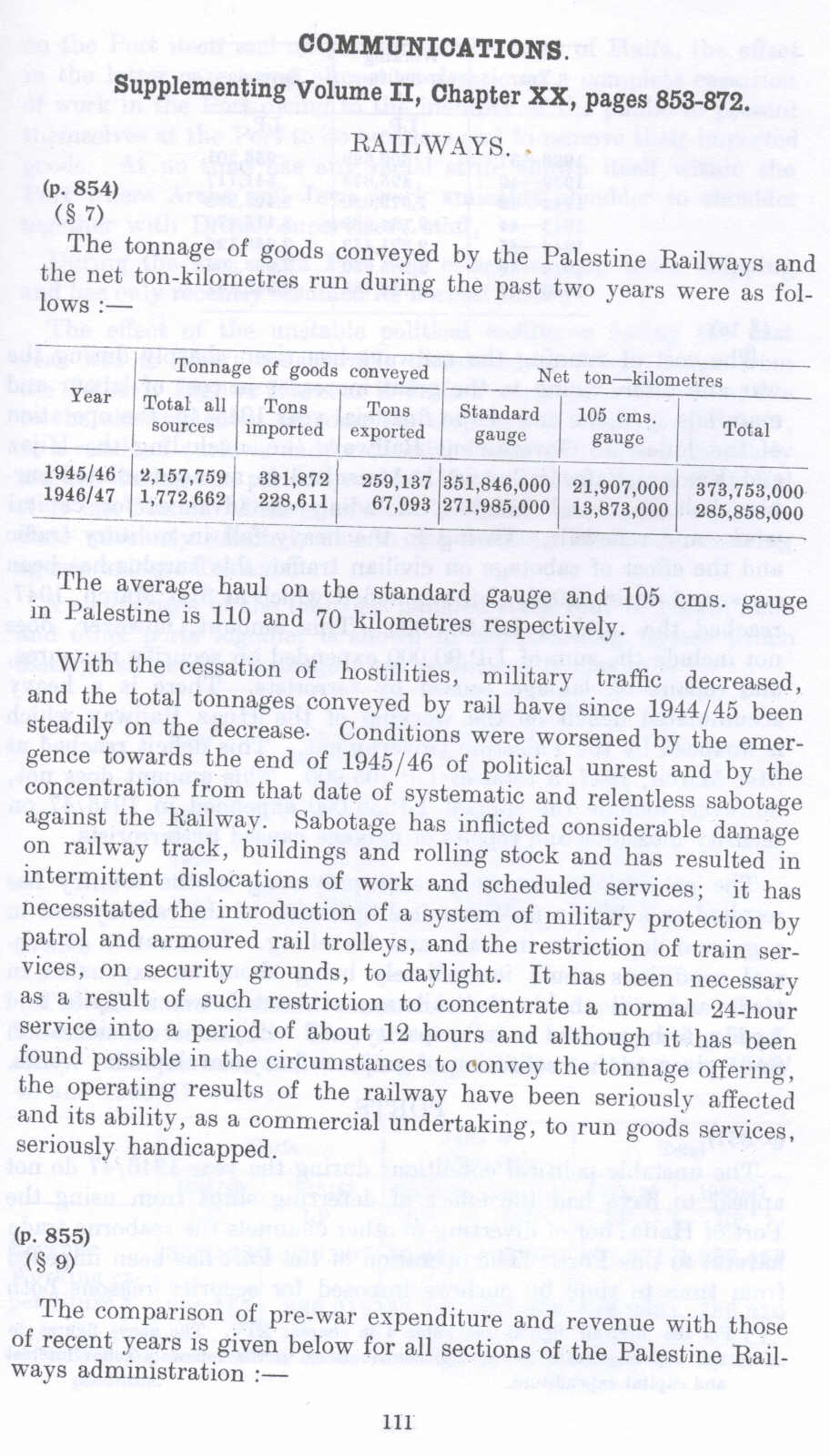| Prev | Next |  |
| Prev | Next |
| PalestineRemembered | About Us | Oral History | العربية | |
| Pictures | Zionist FAQs | Haavara | Maps | |
| Search |
| Camps |
| Districts |
| Acre |
| Baysan |
| Beersheba |
| Bethlehem |
| Gaza |
| Haifa |
| Hebron |
| Jaffa |
| Jericho |
| Jerusalem |
| Jinin |
| Nablus |
| Nazareth |
| Ramallah |
| al-Ramla |
| Safad |
| Tiberias |
| Tulkarm |
| Donate |
| Contact |
| Profile |
| Videos |
Communication in Palestine: Railways before Nakba: Supplementing Volume II, Chapter XX, Pages 853-872, British Mandate: A Survey of Palestine: Supplement - Page 111 |
Disclaimer
The above documents, article, interviews, movies, podcasts, or stories reflects solely the research and opinions of its authors. PalestineRemembered.com makes its best effort to validate its contents.


Post Your Comment
*It should be NOTED that your email address won't be shared, and all communications between members will be routed via the website's mail server.
Supplementing Volume II, Chapter XX, pages 853-872.
RAILWAYS .*
(p. 854) (§ 7)
The tonnage of goods conveyed by the Palestine Railways and the net ton-kilometres run during the past two years were as follows:-
I Tonnage of goods conveyed I Net ton- kilometres
Year Total all Tons I Tons Standard 1105 ems, I Total
sources imported exported gauge gauge
~12.157,759 I 381.872 I 259,137 /351,846,000 I 21.907,000 I 373,753,000
1946/47 1,772,662 228,611 67,093 271,985,000 13,873,000 285,858,000
The average haul on The standard gauge and 105 ems. gauge in Palestine is 110 and 70 kilometres respectively.
With the cessation of hostilities, military traffic decreased, and the total tonnages conveyed by rail have since 1944/ 45 been steadily on the decrease. Conditions were worsened by the emergence towards the end of 1945/46 of political unrest and by the concentration from that date of systematic and relentless sabotage against the Railway. Sabotage has inflicted considerable damage on railway track, buildings and rolling stock and has resulted in intermittent dislocations of work and scheduled services; it has necessitated the introduction of a system of military protection by patrol and armored rail trolleys, and the restriction of train services, on security grounds, to daylight. It has been necessary as a result of such restriction to concentrate a normal 24-hour service into a period of about l 2 hours and although it has been found possible in the circumstances to convey the tonnage offering, the operating results of the railway have been seriously affected and its ability, as a commercial undertaking, to run goods services, seriously handicapped.
(p. 855) (§ 9)
The comparison of pre-war expenditure and revenue with those of recent years is given below for all sections of the Palestine Railways administration :-
Page 111